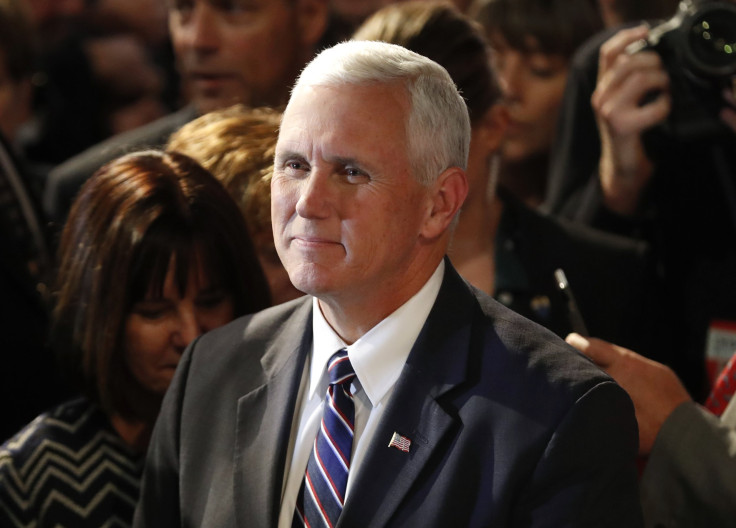Who Is Keith Cooper? Mike Pence Refuses To Pardon Man In Overturned Indiana Criminal Case

Indiana Gov. Mike Pence will likely face some tough questions Tuesday night at the vice presidential debate over his refusal to clear the criminal record of a man who was sentenced to 40 years in prison before being freed for a crime he did not commit. The Republican nominee has thus far refused to grant Keith Cooper a formal pardon, the Indiana Star reported.
Cooper, who was sentenced in 1997 for a robbery committed in Elkhart, Indiana, still has a felony on his record despite being a free man. He served 10 years in prison before his conviction was overturned.
Tuesday is #VPDebate day and #WrongfulConvictionDay. @Elaine_Quijano Perfect time to ask @mike_pence about @PardonKeith Cooper!!!
— Pardon Keith Cooper (@PardonKeith) October 3, 2016
"Dear Governor Pence," prosecutor Michael Christofeno wrote last month. "I am the former Deputy Prosecuting Attorney that prosecuted Keith Cooper in the Elkhart County Circuit Court. I am writing to you in support of Mr. Cooper's Petition for a pardon."
In 2005, an Indiana Court of Appeals overturned the conviction of Cooper's co-defendant. Cooper was given a choice: a new trial before the same judge that convicted him or go free with a felony on his record. With his family struggling to get by in a homeless shelter, he chose to go home instead of battling it out in court.
In 2014, Indiana's parole board and the prosecutor of the case unanimously recommended that Pence pardon Cooper. Pence refused. Instead, the governor told Cooper he should request a new trial and exhaust all of his legal options before requesting a pardon, according to Indiana's Fox29.
Wrongfully convicted Keith Cooper asks for new trial https://t.co/tlSezvgz95 Declining to pardon, @GovPenceIN encouraged exoneration via PCR
— Indiana State Bar Association (@IndianaStateBar) October 4, 2016
A petition on change.org suggests that Pence refused to pardon Cooper because it would look bad for Curtis Hill, the prosecuting attorney who offered Cooper the agreement. Hill is the Indiana Republican Party’s candidate for Attorney General.
Pence has pardoned three people with felony convictions who admitted guilt during his time as governor. Had Pence pardoned Cooper, it would have been the first time in Indiana's history that a governor pardoned someone based on innocence, according to the Chicago Tribune.
Elliot Slosar, Cooper's attorney, has now filed a petition for a new trial. According to the Innocence Project, even if Cooper gets exonerated based on his innocence, he won't receive anything from the state. Indiana is one of 20 states that don't have compensation laws for people wrongfully convicted.
© Copyright IBTimes 2024. All rights reserved.






















